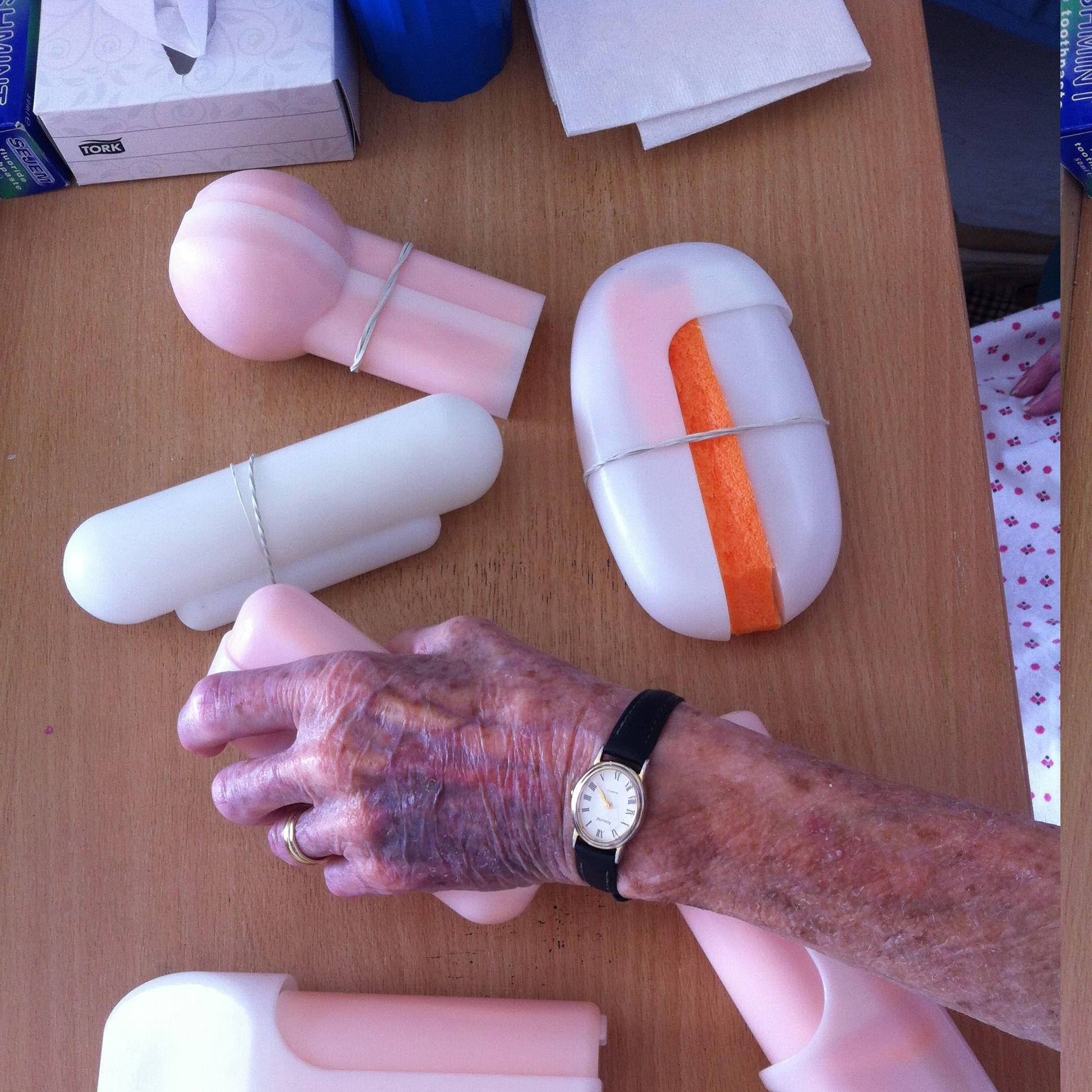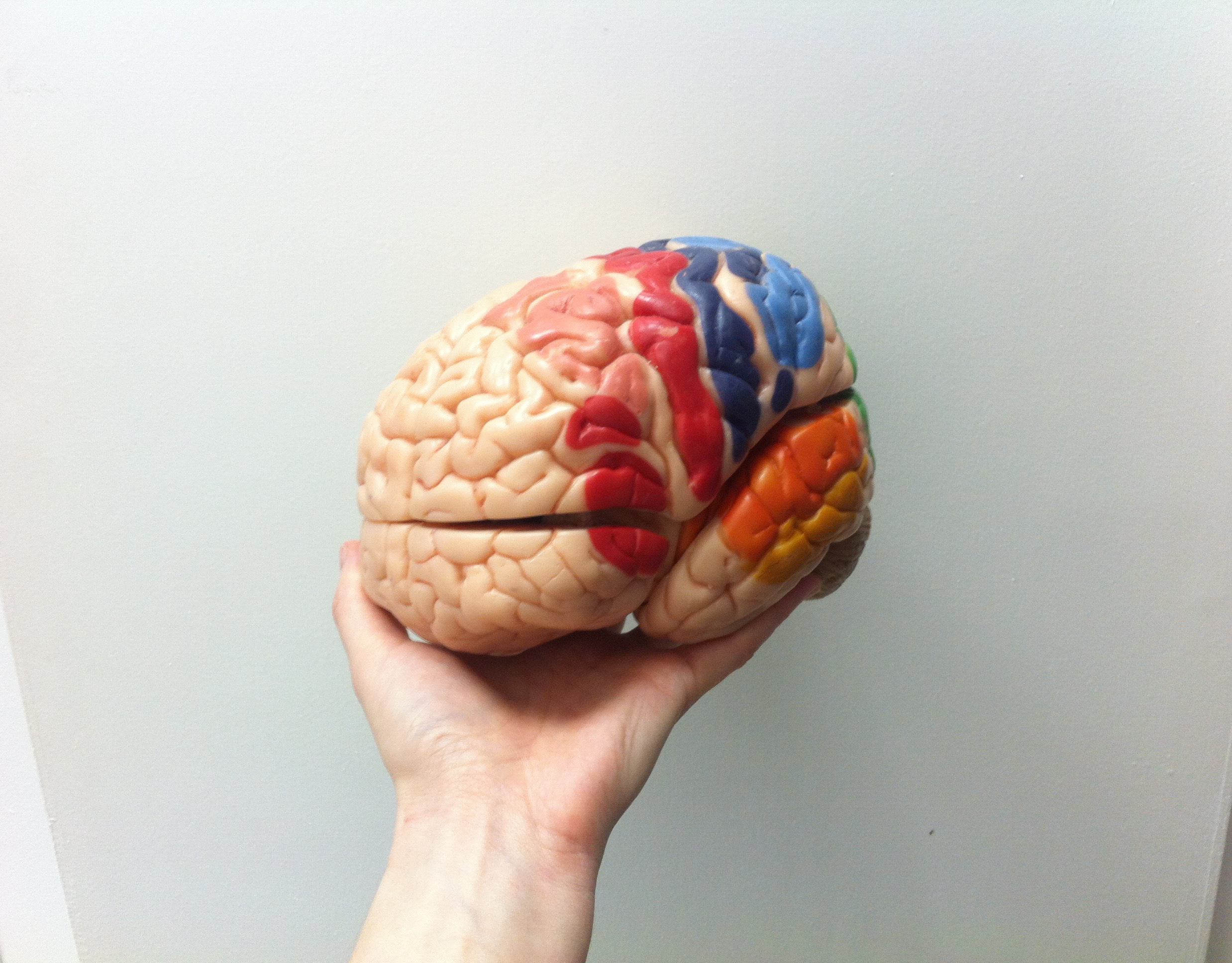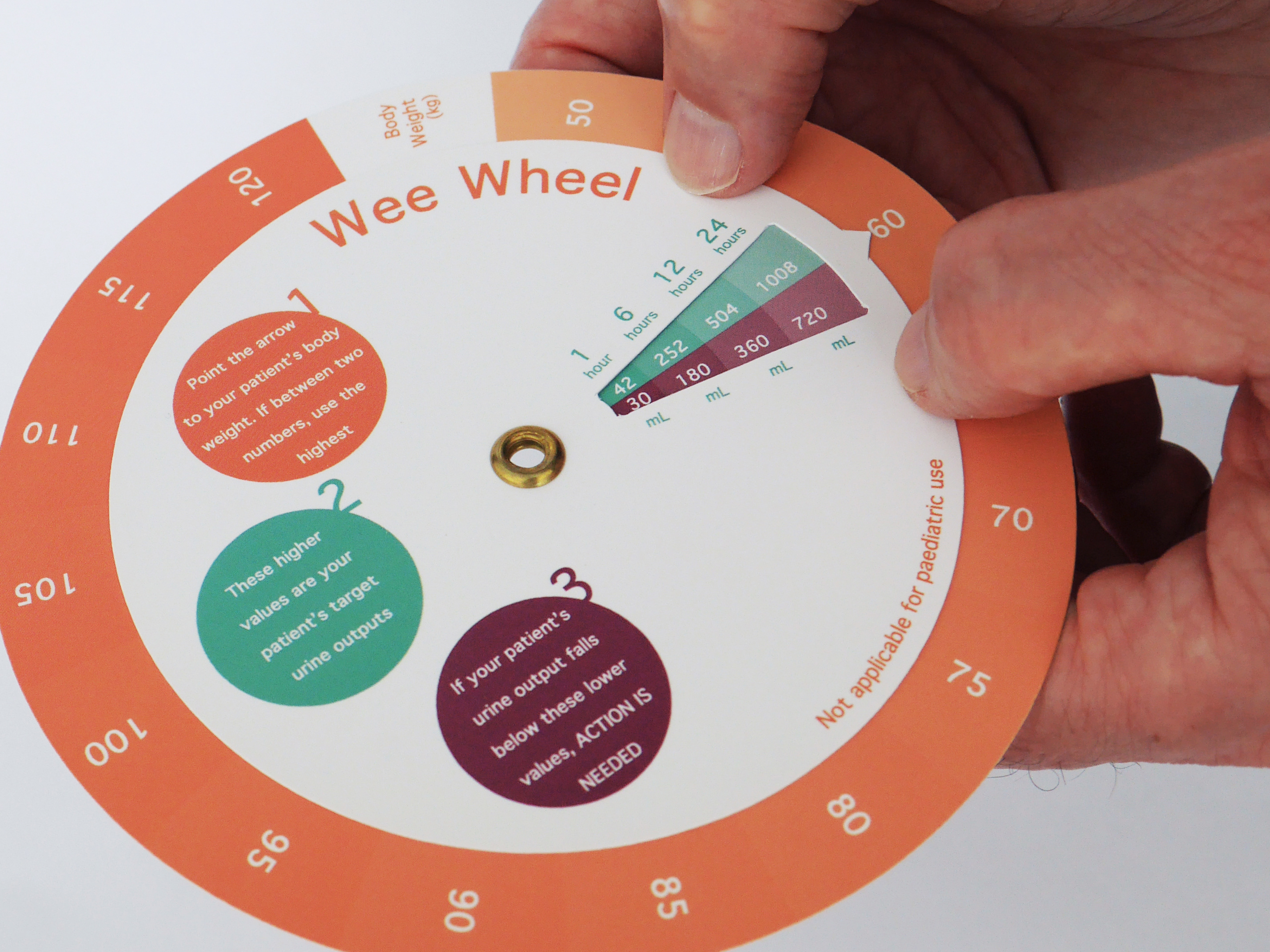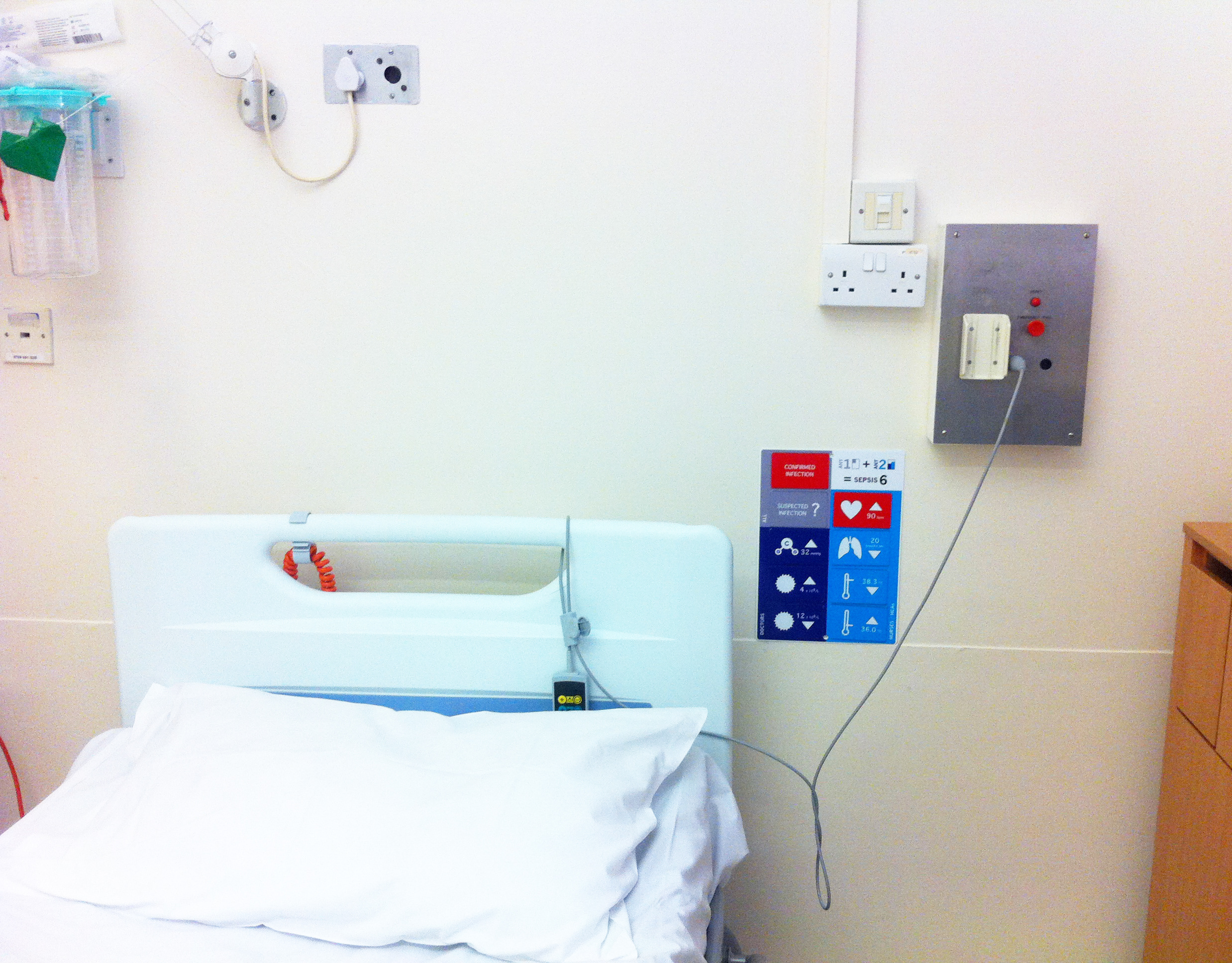Detailed design of a computer game controller for stroke rehabilitation.
___
The Human Robotics Group at Imperial College London had developed a sensitive technology that they incorporated into a hand-held computer game controller that could be used by people who had limited grip strength after suffering a stroke. Following on from stroke rehabilitation and prototyping research I had previously conducted, I created detailed designs based on user feedback. The designs were modelled in SolidWorks and technical drawings were produced to allow this more refined prototype to be manufactured.
The internal working of the controller is confidential, but much of the design was in the detail of how the internal mechanism would be housed. The unit was also designed for infection control. It can be opened and cleaned between patients, with the articulating components and electronics still safely housed within. Anthropometric data and feedback from primary research were utilised to design the form. Slide-on grips can be added for specific needs, and the option of straps can help secure the controller's position for people with more impaired hand mobility. The number of components required was kept to a minimum to ensure cost-effective manufacture through injection moulding.
The project was a collaboration between the Human Robotics Group at Imperial College London and the Helen Hamlyn Centre for Design at the Royal College of Art. Film by Anna Winter. More information about GripAble can be found here.







